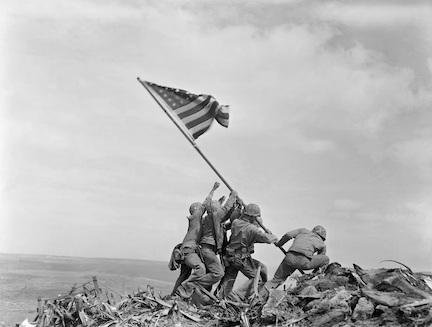Adlai Stevenson And The Killing Of Ruth Merwin: A Tragedy Shapes A Personality
Adlai Stevenson II is almost inevitably called “America’s apostle of peace.”
During the Cuban Missile Crisis, Adlai Stevenson was one of the leading voices of those trying to avoid war. So great was his cautious desire for peace that he seemed weak to many contemporaries.

Hidden very deep in the Stevenson family history – and deep in the recesses of his mind – was a secret so stark, a tragedy so terrible, that he rarely spoke of it. He was shocked when he discovered his wife had heard of it years later. He never discussed it with his children. One member of his family told me the only way he really learned of it was through Jean Baker’s excellent book “The Stevensons.”
Adlai Stevenson shot and killed a 16-year-old girl. He was a boy of 12. The incident haunted him forever.
Some of the details of that horrible night are clear. Others were shrouded in familial denial and self-protection. What we do know is that on the evening of December 30, 1912, Adlai’s sister, Buffie, had guests at a supper party. Adlai, being younger, had eaten earlier and gone to his room.

He watched the party for a time from the periphery. The teens enjoyed music, dancing, and games.
A handsome, popular fellow named Robert Whitmer offered to demonstrate the manual of arms he had learned at military school during the party. Intrigued, Adlai hurried to find a gun and watched the demonstration with fascination. Whitmer carefully checked to make sure the gun was not loaded and proceeded – to applause and admiration – to show the skills he had mastered. When he finished, young Adlai went to put the gun away. It was then that Adlai Stevenson shot and killed Ruth Merwin, a guest and close friend of his sister.
Despite a roomful of witnesses, precisely what happened next is unclear. This confusion is understandable on two levels. First, very few (if any) of the guests would have been paying attention to Adlai as he left the room. They would have been distracted by their resumed conversations, the food, and the music. Second, Adlai never spoke about it, nor was he called as a witness at the inquest. All agree it was entirely accidental. Ruth Merwin’s mother responded in a gracious, compassionate manner, insisting that two lives not be lost.
Some accounts state Adlai mimicked the manual of arms when a rusty spring moved it into the chamber when an undetected round was dislodged by handling the gun and discharged it. Other accounts had Adlai aiming the weapon (which he believed to be empty and safe) from the balcony. A formal inquest was convened. The jury found the incident to be a horrible accident.
Ruth Merwin was buried.
Adlai, too consumed by grief, did not attend the funeral. His sister did. His mother whisked him away, out of town.
Since he was the grandson of a former Vice President, the New York Times reported the story.

By unspoken rule, the Stevenson family never spoke of the incident again. Within a short time, Adlai wrote a letter to his father, which, at least superficially, reflected a positive and happy mindset. Was it denial or sublimation?
What effect did Adlai Stevenson’s shooting Ruth Merwin have on his personality and psychological development? The question is compelling. Because he rarely spoke of it, it is hard to determine a conclusive answer. When William Glasgow, a reporter for Time Magazine, asked Stevenson about it some forty years later, Stevenson reported: “You know, you are the first person who has ever asked me about that since it happened, and this is the first time I have ever spoken of it to anyone.”
Stevenson spent a life\ consumed with feelings of unworthiness, was known to be self-deprecating to a fault, was extremely cautious, and did all he could to avoid violence or bloodshed. Some of these patterns were visible before the death of Ruth Merwin. However, such a tragic event as Adlai Stevenson shooting a girl would undoubtedly profoundly affect an adolescent mind.
——–
BONUS: Do you know what Presidents have killed someone? Click here for the answer!













Pingback: Which Presidents Have Killed A Man? | Speaking For A Change
Pingback: Which Presidents Have Killed A Man? | Speaking For A Change
I had no idea. This offers incredible insight to him as a man.
Wow! What an interesting and albeit sad tale. It is also interesting he was not asked about it until so much later in life.